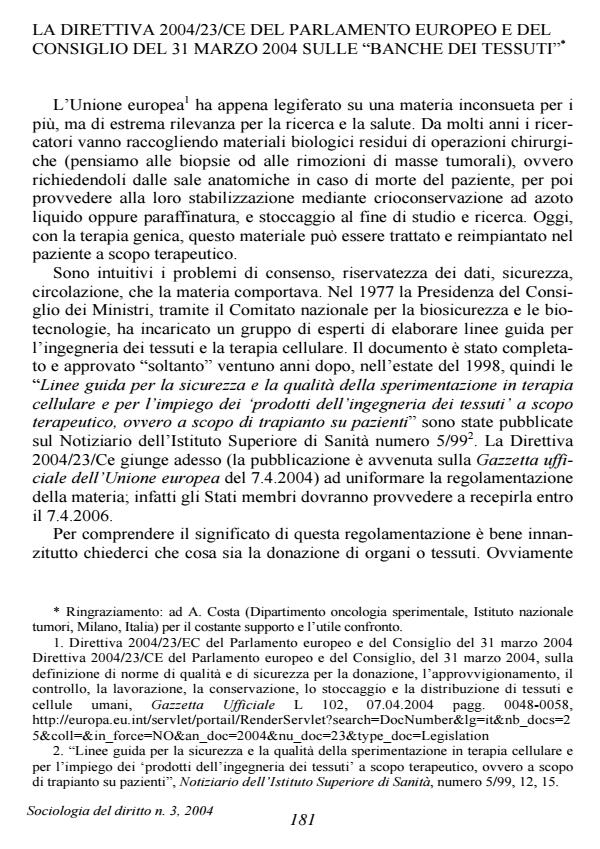La direttiva 2004/23/ce del Parlamento europeo e del Consiglio del 31 marzo 2004 sulle banche dei tessuti
Titolo Rivista SOCIOLOGIA DEL DIRITTO
Autori/Curatori Massimo Burghignoli
Anno di pubblicazione 2005 Fascicolo 2004/3
Lingua Italiano Numero pagine 9 P. Dimensione file 34 KB
DOI
Il DOI è il codice a barre della proprietà intellettuale: per saperne di più
clicca qui
Qui sotto puoi vedere in anteprima la prima pagina di questo articolo.
Se questo articolo ti interessa, lo puoi acquistare (e scaricare in formato pdf) seguendo le facili indicazioni per acquistare il download credit. Acquista Download Credits per scaricare questo Articolo in formato PDF

FrancoAngeli è membro della Publishers International Linking Association, Inc (PILA), associazione indipendente e non profit per facilitare (attraverso i servizi tecnologici implementati da CrossRef.org) l’accesso degli studiosi ai contenuti digitali nelle pubblicazioni professionali e scientifiche.
The author traces the story of Italian regulations previous to European Union Directive 2004/23/EC, offering a definition of the donation of organs or tissues. The Directive generates problems with regard to the right of privacy. The legal status of the collected material, if treated and transformed from waste to laboratory specimen, is that it is the property of the institution that collected it with the legitimate consent of the patient. This treatment may also result in inventions, liable to patent rights vested in the inventor or the scientist (or the research institution). The European Union Directive 2004/23/EC regulates these topics, but also leaves a rôle for Member States, establishing which treatments involve a transformation sufficient to issue property rights to the institution, providing the precise judicial status of tissue banks as the patrimony of the research institute, or giving it a legal status, as a simple agency of the institution.
Massimo Burghignoli, La direttiva 2004/23/ce del Parlamento europeo e del Consiglio del 31 marzo 2004 sulle banche dei tessuti in "SOCIOLOGIA DEL DIRITTO " 3/2004, pp , DOI: